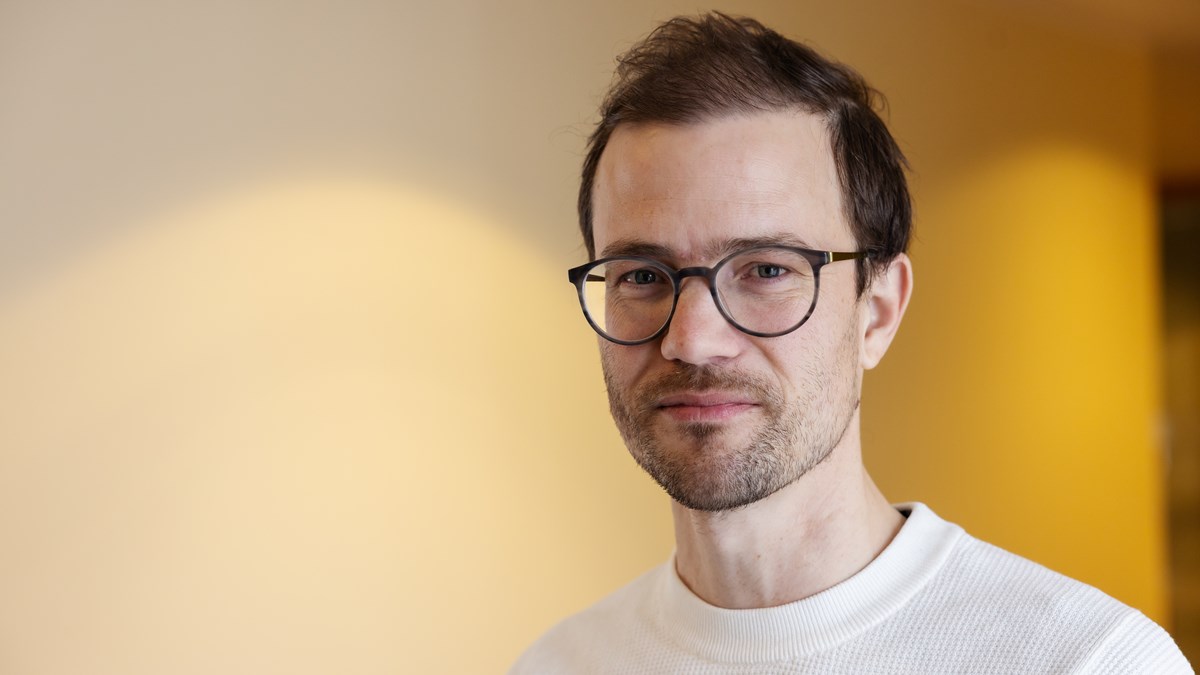Rikard received seven new organs – see a film about his illness journey

Six years ago, Rikard underwent a multivisceral organ transplant, which means that his body received seven new organs. Now he has made a film about his life and about the mental and physical journey of living with a chronic illness.
- I first thought of writing a book, to process what I have been through. But I'm a filmmaker, so it came naturally to make a film. And in the film I want to draw attention to the fact that it's okay to be sad, you don't have to go around being happy and grateful all the time. But joy is what heals wounds best.
Rikard lived with the stomach and intestinal disease chronic intestinal pseudo-obstruction (CIPO) which causes severe symptoms in the form of abdominal pain, vomiting, constipation and diarrhoea. Patients with this disease can eventually develop intestinal failure, which is a life-long and very stressful condition with a high mortality rate. But even though Rikard developed intestinal failure, he has always seen himself as healthy.
- I have always behaved as if I were healthy, I have worked and so on. I think it's a matter of attitude, I'd rather identify with the healthy than lie down and be sick. I may have pushed myself hard, but I don't regret it. I think it has been positive that I have done so.
Intestinal failure means that the intestines do not absorb nutrients or fluids as they should, which means complications that cause damage to other organs. The disease is actually in the throat and all the way down to the stomach, and Rikard has lived with dropsy all his life, which affected the liver and kidneys. Therefore, the organ donation contained several organs at the same time, which is relatively unusual. Rikard says that many who undergo organ transplantation feel an immense sense of gratitude. But after a while, the feeling of guilt can also creep in, which is part of the theme of the film about his illness journey.
- Every day that I feel well, I am very grateful for. Now this is my new normal, then I have to remind myself that I have not always felt or feel well. You don't have to be grateful all the time, but I can appreciate that I'm actually doing well.
In the film that took three years to shoot and where you filmed most of it yourself, you say that you choose to be happy?
- I have lived with that attitude all my life. Seeing the glass as half full, I think everyone can choose that attitude even if people have different conditions for it. As a child, for example, I did not want to go on trips and meet other children with the same illness, I preferred to be with my friends.
According to Rikard, it's the everyday things like working, or being able to go to a party and meet people that are most important.
- Now I can live the life that I've known I've had inside me all along. I no longer have to struggle out of bed and it hasn't been like that before. It is clear that I have but after such a major operation, but I really feel much better now than before the transplant. I thought I was fine before, but I realize now that I wasn't.
Who will see the film?
- Maybe those who are waiting for a transplant or who have been transplanted. But transplantation is a last resort and you should be aware of that. It's not like if I just get to do it, everything will be fine, there are no guarantees. I have had tremendous luck. But the message is not that it is a so-called qucik fix, it does not always go well.
Facts: Intestinal failure treatment
Intestinal failure is defined as a condition where the absorptive capacity of the intestine is so low that extra energy-giving nutrients and/or fluid and electrolytes are required to maintain health. There are several reasons why patients develop intestinal failure. It can thus be caused by reduced motility of the intestines but also inflammatory bowel disease, vascular catastrophe, surgical complications or congenital malformations.
There are relatively few patients, from newborns to adults, but who often have very long-term and tangible health and care needs with a major impact on quality of life. For some of the patients, the condition is life-threatening and the last resort is transplantation of abdominal organs, multivisceral transplantation.
Sahlgrenska University Hospital is the Nordic region's most complete transplant hospital with over 25 years of experience of performing multivisceral transplants and a Intestinal Failure and Transplant Center (SIFT) that offers an intestinal failure program that is proven to benefit patients. The center welcomes patients from other parts of Sweden and also from abroad.
This article was first published in Swedish in Sahlgrenskaliv, Sahlgrenska University Hospital's Digital Magazine.
If you are a hospital, authority or healthcare professional in another country interested in collaborating with the Sahlgrenska Intestinal Failure and Transplant Center, please reach out to us at Sahlgrenska International Care!